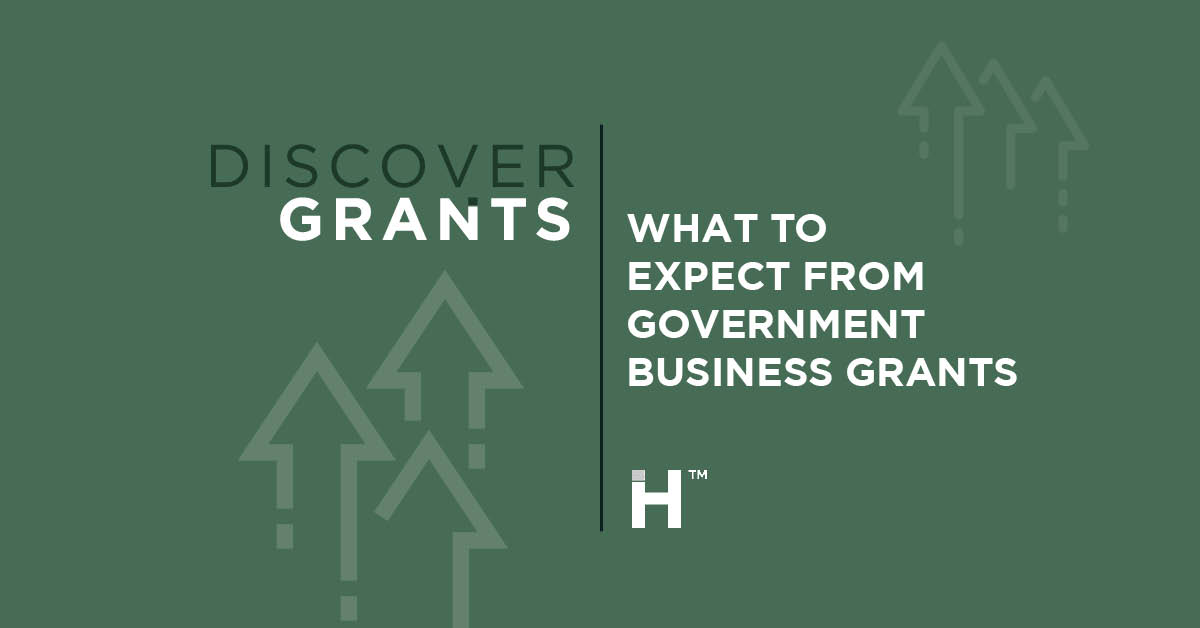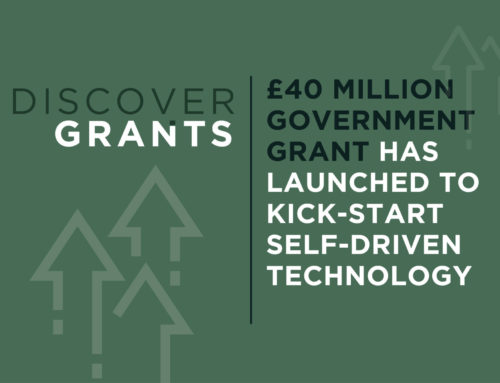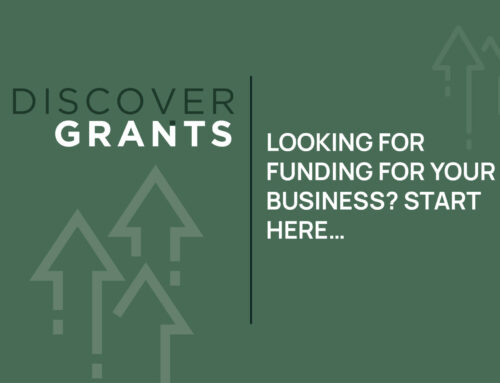Government business grants – what to expect
There is a whole multitude of government business grants available in the UK. Finding and securing government business funding can require a lot of your time. However, there’s no better feeling than securing a grant for your business. It can give you a confidence boost as well as slightly easing the financial burden of your business or project.
The UK government spent £118 billion on grants for 2019 to 2020. This figure is on a 4% increase from £113 billion in 2018 to 2019. Government grants made up a total of 13% of the total UK government expenditure. The Department for Education (DfE) gave out the greatest amount of money grants last year. They accounted for 55% of the total value of government grants.
It can be tricky to know where to begin when it comes to government grants in the UK. This blog will give you a list of things to consider and information on what’s included in government grant documents.
What type of government business grants are on offer?
The UK government offers a plethora of business grants across multiple business sectors for both businesses and projects. Often, they are for a specific sector, geographical location or have certain objectives that need to be met. The UK government encourages SMEs (small and medium enterprises) to not only exist but become part of wider supply chains.
The government has a focus on securing supply chains that are closer to home post-COVID-19. Due to this, there has been an increase in funding to support UK SMEs across the country. The government is supporting them via the provision of grant funding opportunities.
Examples of government business grants that are available include:
- Government start-up grants
- Council business grants
- Government grants for small businesses in the UK
- Grants for charities
- Cash grants for small businesses
- Government research and development grants
- Green funding for trucks and buses
- Affordable housing grant funding
- Urban Tree Challenge Funding
- Government grants for new businesses.
11 things to consider when applying for government business grants in the UK
-
Read the grant documents, thoroughly
Reading the grant documents thoroughly before moving forward with your bid is the first crucial step when applying for funding. Here you will be able to measure whether the funding is appropriate for your business or project. Taking the time to read every bit of information, even if the documents are 30-pages, will be helpful going forward. You may come across pre-requisites that you need in order to be eligible for government business funding.
There may be specific targets government grants in the UK are aiming to achieve. This could range from hiring a certain number of local staff to tackle unemployment to developing innovative, sustainable solutions. If you don’t plan to meet the aims or targets noted, you should keep looking for other funding opportunities. Whatever you do, don’t try and make your business or project fit a grant. If a grant is suitable for your business or project, both its objectives and yours should align.
-
Talk to the contract awarding body
Before you start applying for any grant, you may want to consider speaking to the contract awarding body first. This conversation will allow you to better gauge the chance of submitting a successful application. It’s a good opportunity to raise any questions you may have after reading the grant documents. You will find that they will often be more than happy to provide you with more information. However, make sure the questions you ask aren’t already addressed in the specification, or on a frequently asked questions section.
-
Ask yourself – are you eligible?
Say you’ve come across a government business start-up grant that you think will be perfect for your business. You may be wondering if it’s the right opportunity for your business. Ask yourself:
- Do the funder’s aims and objectives align with your own?
- Do you meet the eligibility criteria?
- Do they offer the amount of funding you require?
If you’re not sure if a funding opportunity is right for you, a SWOT analysis might be able to help. A SWOT analysis is a great way to help you unpack and decide if an opportunity is right for you. You should assess the:
- Strengths
- Weakness
- Opportunities
- Threats
Once you’ve established and identified the right government business funding for your business, you can start writing your proposal.
-
Plan efficiently and well in advance
Planning efficiently and well in advance is a necessity for any grant application. Great time management is essential. Furthermore, completing your proposal may take weeks or even months depending on the size of the grant you’re applying for. Some grants may only be open a couple of times a year, so it’s important to be prepared when they do. Make a note of when they open and the submission date and plan backwards from there. This can help ensure that you have enough time to formulate a winning grant proposal response.
When planning your proposal, set realistic internal deadlines. Leave plenty of time for you and your team to gather any additional information, data and statistics they may need. There’s nothing worse than being rushed, it can lead to avoidable errors and may result in a weakened proposal. Planning time for unexpected delays is one way to ease the pressure.
Breaking down the grant specification is a great way to start. Make a note of the:
- Submission date and time
- Key points, questions
- Word or page count of each question
- Format of the proposal
- Any additional documents required
- Where and how to submit (via portal, hardcopy, email etc).
-
Look at things from the funder’s perspective
After reading the grant documents, a useful thing to do is put yourself in the funder’s shoes. What would you want to know if you were them?
Thinking from another perspective can be refreshing and great for brainstorming if you’re struggling with your proposal. Address their aims directly. For example, if the funding aims to tackle unemployment in a certain area, consider hiring local long-term unemployed people.
Government grants to start a business, for example, will have an overall vision they’re trying to achieve. They could be encouraging more SMEs and an innovative and competitive landscape, for example. Your grant response should demonstrate how you’ll achieve this and how their money will help. Look into the organisation, do some research and you might have more in common than you think.
If you’re unsure of what a funder is looking for, a Grant Writing Consultant can help. They are experts in grant writing and have a sound knowledge of what a funder will be looking for. They will be able to best convey your business or project to them, increasing your chances of success.
-
Include a business plan
To qualify for government funding for new businesses you will likely need to demonstrate that you fulfil certain criteria. This may include detailing your business plan which would be ok if you are applying for government small business grants. If you are a new business, you will need to create one.
This may involve providing a statement of your company’s finances over a certain period. If you’ve already started trading, you will likely need to provide examples of your business’s position and balance sheet. If you’re a start-up, it may require you to provide projections of your profits and losses in the coming years.
Questions to consider for your business plan:
- What is the nature of your business?
- What services or products do you offer?
- Who and what is the target market or audience for your company?
- Do you have a unique selling point or advantages that your competitors don’t?
- What needs will your business fill?
- How do you plan to fill those needs?
-
Consider the format and style of your proposal
A well formatted proposal to a funder is like a feast for their eyes. If your proposal is well formatted and broken up into headings and subheadings, you’ll get in a funder’s good books. They will subconsciously favour this, over submissions that are chunks of heavy text.
Obviously, the format of a proposal for government grants for new businesses may be different from that of creative grants. Either way, you should try and make your bid clear and concise. Try and hit as close to any word counts as possible. Avoid the use of over technical jargon and don’t assume that they know anything. Leaving room for assumptions is leaving room for the wrong assumptions to be made.
Funders want to read well-articulated responses that are formulaic and comprehensively thought through. Break the response up into headings and subheadings. Try to convey your passion and excitement in your writing.
Remember, before you submit to double-check and proof for any errors. It’s best to leave a day or two in between to get maximum results with a fresh pair of eyes.
- Is anything unclear?
- Could something be explained further?
- Have I covered every aspect of each question?
- Is there any awkward language?
- Can I cut any unnecessary points or rambling out?
- Is anything missing?
- Can you picture my project?
- Do I justify why I need the funding and how it will help me and others?
-
Include evidence backed up with facts and stats
Including facts and statistics in your proposal can strengthen driving points home with evidential proof. A useful way to format your response is by using the P.E.E method:
- Point
- Evidence
- Explain
This method can ensure that your point is backed up with evidence that’s explained. Be persuasive and stay close to the specification.
-
Don’t ignore innovation and sustainability
The UK government has certain targets and objectives that they aim to meet on an array of factors. Innovation and sustainability are two crucial aspects of a lot of government grants in the UK. This is because the government wants to be leaders in innovation and sustainability globally. More often than not, a winning bid will have innovative and/or sustainable solutions to an issue.
Ground-breaking and unique solutions are encouraged within government funding. Thinking outside of the box helps. Ask yourself if your company or project has a truly unique solution to an issue.
Regarding sustainability, grant awarding bodies want to see that their money will have a lasting impact. Sustainability is one of the government’s top priorities going forward in 2021. They don’t want short-term solutions; they want to find a solution to the root of the problem. In your grant proposal, you should detail how the grant will be sustainable and long-lasting.
Social Value
No matter the sector of government funding you are applying for, you must consider social value. This is the social, environmental and economic beneficial factors of your bid. Government business grants in the UK will require you to address these. You must include positive outcomes and how these will continue after the funding has come to an end. The inclusion of these aspects will do nothing but strengthen your proposal, increasing your chances of securing funding.
-
Realistically evaluate running costs
Funders for government grants in the UK will expect you to demonstrate that you know how to handle money. They want to see that your business has a sound methodology for money use and management. Including past projects where you have managed cash-flow demonstrating your capabilities will strengthen your application. This will reassure the government contracting authority that their money, or rather the taxpayer’s money, is in safe hands.
You will need to present evidence of your money handling abilities and the running costs of your business or project. The specifics of what a funder expects you to include will be noted in the grant documents. You might be required to present the following:
- A business plan for the implementation of the project
- A fully costed project or business analysis
- A cash flow analysis for the use of money
- The degree of financial knowledge and skills within your company
- The financial safeguards and controls you have in place within your business
- Previous annual report (where possible)
- Your business’s annual income and expenditure (where possible).
-
If at first you don’t succeed, try again
Not everyone will be able to secure funding the first time around. If that happens, don’t be disheartened it’s just part of the process. Dust yourself off and try again. Asking for feedback from the funder if it isn’t already provided can be a great help. It can highlight any shortcomings or mistakes that you can learn from and avoid in the future.
This feedback can help strengthen your government business funding applications next time around. Whether this is for government grants for a small business or government start up grants, funders will always give feedback.
When writing your bid for funding, remember to include:
- The justification of the need for your service
- How your solution or business meets a need
- How you will engage with the intended audience
- The measurable outcomes that you’re aiming to achieve
- How it will have a lasting impact
- The running costs
- The benefits of the funding.
10 things you can expect in government business grant documents:
When applying for government business grants, you might see some overlapping information about the contents of the grant documents. Generally speaking, but not always, you can expect to find the following within the grant documents:
-
Guidance
The guidance will include a short amount of information such as the general broad overview of the grant. It often includes what governing bodies are issuing the guidance. For example, the Secretary of State for Business, Energy and Industrial Strategy to Local Authorities in England.
-
Introduction
The introduction contains information on things such as when the grant was announced and who it is administered by. It will provide a general overview and contents about what is to be covered within the documents.
-
Funding available
Within the grant documents, you will find a breakdown of the funding that is available. It will note whether it’s a one-off grant, or whether it’s recurring. Here, you will be able to find relevant dates as well as the grant sums available from the funding.
-
Eligibility criteria
The eligibility criteria is one of the most important sections to note when reading through grant documents. Here, it will note what businesses or projects are eligible, what sectors and so on. This could include:
- Nature of business
- Number of employees
- The sector it operates in
- The country it operates in
- Annual turnover.
Depending on the grant, a business may be required to self-certify that they meet all the eligibility criteria.
-
Grant details
This section will explain the objectives of the grant and go into more depth about it. Here, funders will go into greater detail about why the grant is available and what they’re trying to achieve. It will include the general scope and scale of what is available. It will outline their aims and if there are any specific criteria that a business will need to meet if successful.
-
Information on how the grant will be provided
Here, you can expect information on how the grant(s) will be provided if successful. Depending on the grant applied to, it could be in monthly instalments or a lump-sum payment. Sometimes you may be required to submit an invoice to the funder to be reimbursed with the grant amount.
-
Managing risk and fraud
The managing risk and fraud section will detail the relevant safeguarding policies put in place by the contracting authority. It will include how they will carry out the mitigation of risks in order to prevent fraudulent activity. Moreover, it will likely detail the pre-payment checks. This will often look at both the company and the company’s bank account. The governing body will also detail what relevant fraud management procedures they have in place. This will demonstrate what will happen in the event of fraudulent businesses.
-
Pre and post-event assistance
This section will detail who is responsible and accountable for the lawful use of funds. This is in accordance with Section 151 of the Local Authority Government Act 1972. It outlines that the awarding body must have pre-and post-payment assurance plans in place. The plans will likely cover the actions and checks in place that funders have when awarding funding.
-
Monitoring and reporting requirements
Monitoring and reporting requirements are an integral part of the grant documents. Here, you will find the reporting procedures that the government business grants in the UK will have. This reporting enables accurate monitoring, evaluation and assurance of business support grant payments. You will likely need to provide data to the funder and updates on the spending. This could include fraud detection practices and procedures.
-
Annexe’s
At the end of the grant documents, you will often find annexe, these could be anything depending on the grant. They could be annexes on post-payment reporting or undertaking in difficulty and so on.
So, now you know what to consider when applying for government grants in the UK. Hopefully, this will be helpful going forward when applying for government business funding. There’s a variety of grants on offer from the government to suit all business types and sectors. Remember that each grant is different, and each funder will have different requirements.
Need help with writing your grant application?
Our Grant Writing Service is for businesses who want to start applying for grants, but don’t know where to begin. If you don’t have the resources or the time in-house to write a winning grant – we can help. Our Grant Consultants have over 60 years of experience in bidding for funding and grants. They can take care of the whole thing for you – they’ll even submit it on your behalf.
Get in touch to find out how we can help your business grow!
Our Grant Tracker service is now available and hosts all the latest grant opportunities in the UK from 1,500 data points. Opportunities are manually tracked, enabling for accurate keyword labelling, optimising your search for the perfect grant.
Sign up now!
Find more helpful tips and advice in our blogs. We cover topics including:
- How a Grant Writing Consultant can help your business
- Innovate UK grants
- Start-up business grants
- Business grants in the UK
- How to apply for a government grant
- Working with Grant Writers
- Bidding for funding
- Council business grants
- Government funding
- Grant writing help
- And many more.





